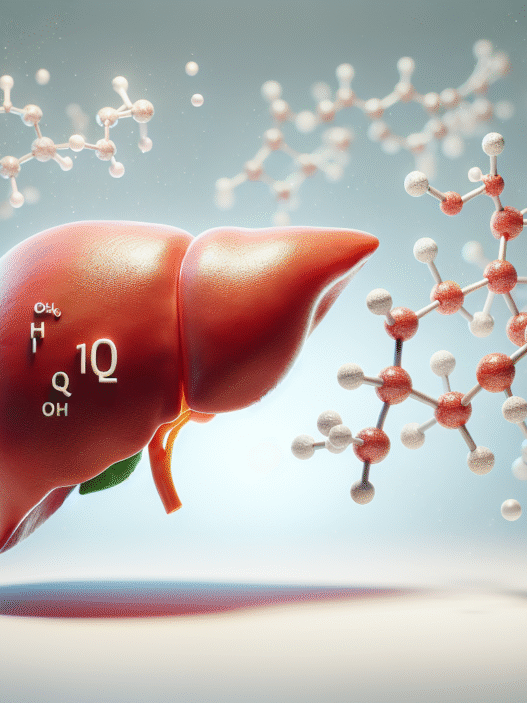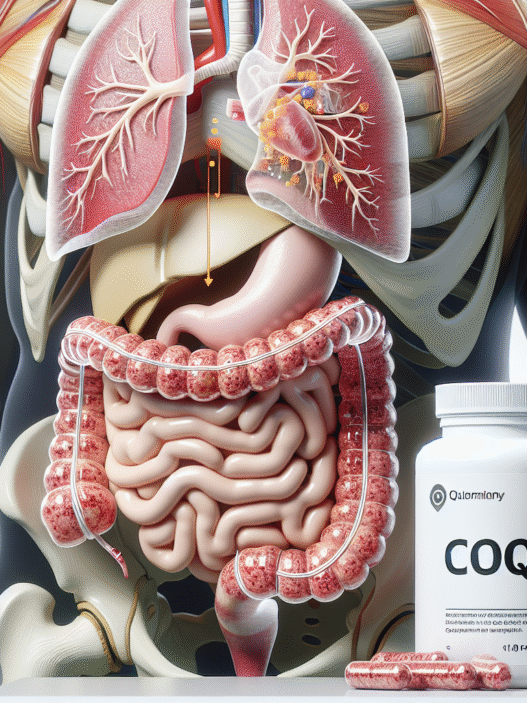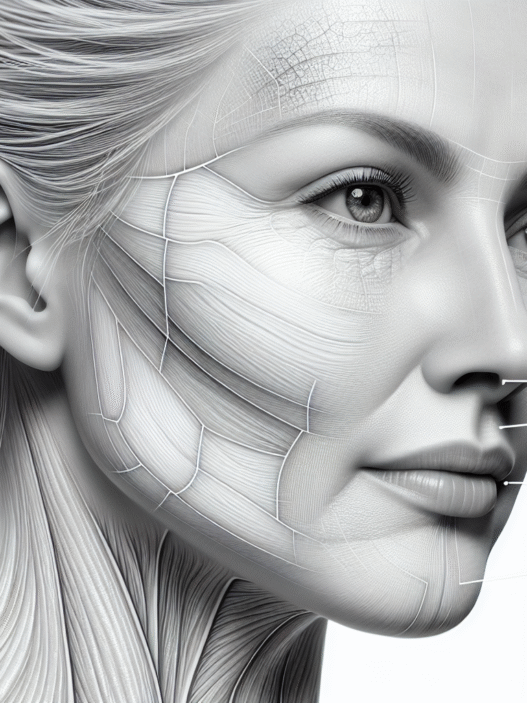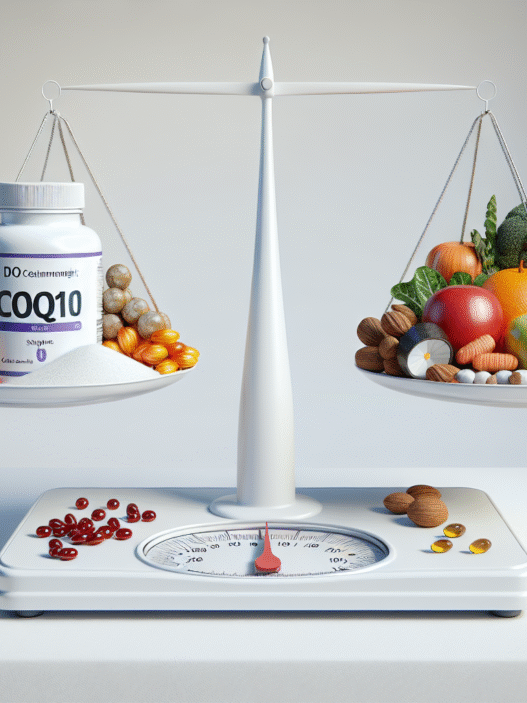Understanding CoQ10
Introduction to Coenzyme Q10
Coenzyme Q10, aka CoQ10, is that superhero antioxidant chillin’ in every cell. What does it do? It sparks energy, especially loving the heart, liver, kidneys, and pancreas (Healthline). Yeah, CoQ10’s the behind-the-scenes star in making ATP. ATP? It’s like the Instagram followers for your cells – super important for making them do their thing.
And as an antioxidant, CoQ10’s on patrol duty, kicking out those nasty free radicals so your cells don’t get all stressed out. This protection helps dodge things like the aging blues and those pesky lifelong diseases. Keeping our CoQ10 levels in the green is like giving a thumbs-up to good health, especially as we hit those “vintage” years.
Importance of CoQ10 Levels
As age starts creeping up, CoQ10 clocks out early, sometimes leaving us with a sad energy tank. By the big 5-0, our body’s CoQ10 factory tends to slow down, which could leave us dragging and maybe picking up some age-related aches along the way (Source).
Check out these CoQ10 levels by age and see how they play out over time:
| Age Group | Average CoQ10 Levels |
|---|---|
| 30-39 years | 1.0 – 1.2 mg/mL |
| 40-49 years | 0.8 – 1.0 mg/mL |
| 50-59 years | 0.5 – 0.7 mg/mL |
| 60+ years | 0.3 – 0.5 mg/mL |
See the pattern? CoQ10 gradually takes a nosedive. So, it’s no shocker that many over 50 wonder if popping a CoQ10 supplement might keep their pep in check everyone over 50 should take CoQ10?. It might just give a leg-up on energy and overall feel-good vibes. But hey, a word to the wise: chatting with a doc before jumping into the supplement game is a smart play. Especially if you’re mixing meds or rocking any medical conditions. Find out more about what medications cannot be taken with CoQ10?.
CoQ10 and Aging
Coenzyme Q10, or just CoQ10 for us ordinary folks, is like the superhero of the cell world, charging your energy power plants and fighting off those pesky oxidative stress villains. Grasping how CoQ10 jives with the whole getting-older gig might help us decide if everyone over 50 should give CoQ10 a go.
Age-Related Decline in CoQ10 Levels
As the clock ticks, CoQ10 levels tend to drop, especially in heavy-lifter areas like your heart, muscles, and brain. This going-downhill trend can be blamed on a bunch of culprits, like our mitochondria getting a bit lazy, antioxidant defenses not pulling their weight, and increased oxidative stress. Though our bodies are CoQ10-making machines, churning it out using this mevalonic acid deal, age seems to mess with production, leaving us with a CoQ10 drought.
Here’s a lowdown on how CoQ10 levels tail off in different parts of the body as we age:
| Age Group | Estimated CoQ10 Levels (mg/kg) | Tissue Type |
|---|---|---|
| 20-30 years | 2.5 – 3.0 | Heart |
| 40-50 years | 1.5 – 2.0 | Muscle |
| 60+ years | 0.5 – 1.0 | Brain |
Some eggheads say CoQ10 pills could pump up life quality, keep people out of hospitals, and boost older adults’ muscle strength. Still, whether these pills give true superhero juice to muscles is up in the air for now (source).
Impact of CoQ10 Deficiency on Aging
Running low on CoQ10 isn’t just a bummer; it might mess with how we age. Those short on CoQ10 sometimes deal with health curveballs like heart troubles and the usual age-related woes. Plus, folks popping statins to keep cholesterol chill might find CoQ10 levels dropping due to the way these drugs mess with CoQ10 production in the body.
The good news? You can refill those CoQ10 tanks with some help from supplements, especially before any red lights start flashing. But science isn’t quite ready to jump on the “CoQ10 is the next anti-aging miracle” bandwagon just yet. More research has to nail down whether CoQ10 is the aging game-changer we hope it is.
In the end, as CoQ10 naturally dwindles with age, investing in supplements might be a key move, particularly if aging-related issues are knocking at your door. For those pondering the CoQ10 route, chatting with healthcare pros could sort out the best game plan tailored to your health puzzle and any meds they’re juggling.
Benefits of CoQ10 Supplementation
CoQ10, or coenzyme Q10, is known for its help with heart health and preventing nasty migraines. Folks, especially those hitting the big 5-0, are curious if everyone over 50 should take CoQ10.
CoQ10 for Heart Conditions
Research is pointing to CoQ10 being a game-changer for various heart issues. Studies reveal that it can make treatment work better for folks with heart failure, lowering their chances of ending up in the hospital or worse (Healthline).
Here’s how CoQ10 gives heart health a boost:
| Benefit | Description |
|---|---|
| Jumps Up Energy | It helps cook up ATP, fueling heart cells. |
| Bans Oxidative Stress | Shields against damage from nasty free radicals. |
| Gets Blood Pumping | May help blood vessels chill out, aiding flow. |
These perks make CoQ10 a hot topic, especially for those worried about growing older and keeping their hearts ticking healthily.
Role of CoQ10 in Migraine Prevention
CoQ10 isn’t just about the heart—it might help keep migraines at bay too. Studies suggest it can trim down how often that throbbing pain strikes. Safe and usually easy on the stomach, doses hover between 100 to 200 mg daily. Some folks experienced fewer headaches with it (Mayo Clinic).
Here’s the scoop on CoQ10’s migraine-fighting power:
| Effects | Description |
|---|---|
| Cuts Down Headaches | Regular use can mean fewer migraine bouts. |
| Boosts Treatment | Helps improve how well other treatments work. |
For those wanting a different path than regular migraine meds, CoQ10 could be a handy option worth checking out.
Anyone thinking about CoQ10 should also see if it plays nice with their meds by reading our guide on what medications cannot be taken with CoQ10.
Safety and Side Effects
Safety of CoQ10 Supplements
CoQ10 supplements are generally okay for most folks when used correctly. The Mayo Clinic mentions only a few side effects usually pop up with CoQ10. It’s always a smart move, especially for those over 50, to have a quick chat with their doctor before starting something new. This helps make sure any health quirks or potential medicine clashes are sorted out.
Potential Side Effects of CoQ10
While CoQ10 is mostly safe, a few mild side effects can show up. Here are some common hiccups folks have mentioned:
| Side Effect | Description |
|---|---|
| Digestive Issues | Some might feel queasy, have diarrhea, or lose their appetite. |
| Insomnia | A few folks say they have a hard time catching Z’s. |
| Headaches | Slight headaches can occur for some users. |
| Fatigue | It’s rare, but some might feel more tired after taking CoQ10. |
There’s a bit of worry about CoQ10 possibly shaking hands with other meds, which is important to consider. If you’re curious about these interactions, check out our write-ups on what medications cannot be taken with coq10? and who cannot take coq10?.
For those fretting over specific health stuff, like its impact on kidneys, we’ve got you covered—hop over to our piece on is coq10 hard on kidneys?.
Lastly, if you have high blood pressure, keep an eye on how CoQ10 might affect it. More scoop on this is waiting for you in our chat on can coq10 raise blood pressure?.
Just like with any other supplement, keeping an eye on how your body reacts to CoQ10 and staying in touch with your doc makes everything much smoother and safer.
Special Considerations
Thinking of popping some CoQ10? Before you start, there are a couple of things you should really consider, especially if a little one is on the way or if you’re taking meds.
CoQ10 Use During Pregnancy
Getting the green light for CoQ10 while pregnant or nursing? That’s still a bit of a mystery. If you’re expecting a baby or you’re a new mom, play it safe and chat with your doc first. It’s super important to make sure nothing messes with your health or the little one’s well-being (Mayo Clinic).
| What to Think About | What to Do |
|---|---|
| Pregnancy | Steer clear of CoQ10 unless your doc gives you a thumbs up. |
| Breastfeeding | Check with a healthcare provider before diving in. |
Interaction with Medications
Now about those meds — CoQ10 can sometimes butt heads with them, messing with how they work. If you’re already taking any pills, make sure to have a heart-to-heart with your healthcare pro about possible clashes. For example:
| Type of Medication | What Happens |
|---|---|
| Blood Thinners (e.g., warfarin) | CoQ10 might make these less effective, which could lead to unwanted clotting. |
| Blood Pressure Pills | CoQ10 could crank up blood pressure, which is not what you want if you’re on meds to bring it down (can coq10 raise blood pressure?). |
For more details on which meds don’t mix with CoQ10, head over to our guide on what medications cannot be taken with coq10?.
Knowing how CoQ10 interacts with other factors means you can stay a step ahead health-wise. That’s especially important for folks keen on aging gracefully and sticking around for a good long while.
Future Research on CoQ10
There’s a buzz around Coenzyme Q10 (CoQ10) and its potential to slow down the ticking clock of aging. Let’s take a peek into what researchers are sniffing around for when it comes to CoQ10 and its possible benefits as the antidote to Father Time’s relentless march.
Potential Anti-Aging Benefits
Getting older can sometimes feel like our body’s just running out of juice—literally. As we pile on the years, our mitochondrial batteries need a recharge, and that’s where CoQ10 might come in handy. This little molecule runs the electron taxi service, zipping energy around for cell metabolism, kind of like Uber for electrons. On top of that, it’s a pretty decent bodyguard, battling oxidative stress and keeping cell damage at bay. Some scientists think popping a CoQ10 supplement could boost those tired old cells and, in turn, ease some of those age-old aches and pains.
| Possible Upsides from CoQ10 | What It Could Do |
|---|---|
| Supercharges Mitochondria | Fires up cell energy production |
| Acts as a Cell Shield | Fights oxidative stress and wards off cell harm |
| Life Quality Boost | Could up the ante on how older folks feel day-to-day |
| Muscle Mojo | Some evidence points to beefier muscles with CoQ10 |
While there’s chatter about CoQ10 helping out heart health and nixing some nasty inflammation signs, the jury’s still out on giving it an official nod as an anti-aging hero (Source).
Ongoing Studies on CoQ10
Researchers are knee-deep in digging out more on CoQ10’s role in the health aging playbook. They’re curious about how it might lend a hand with everything from keeping your ticker ticking to easing those migraine miseries. Here’s a taste of what’s cooking in the lab:
- Life Quality Check: Scientists are sussing out if CoQ10 shakes up health metrics for gra’ older generation, and might even cut back on those hospital sleepovers.
- Mito-Magic: There’s a keen eye on how CoQ10 might help with nagging mitochondrial issues and their infamous symptoms.
- Migraine Mayhem: On the table is the potential for CoQ10 to shorten migraine woes and work wonders on boosting fertility success stories.
As we age, our body’s natural stash of CoQ10 dwindles, but supplements could bump up its presence in tissues, tipping the scales in favor of health (Source). Future peeking through the research lens might spell out more on whether every over-50 should consider hopping on the CoQ10 wagon. Does it make sense for seniors to pop CoQ10?.





















